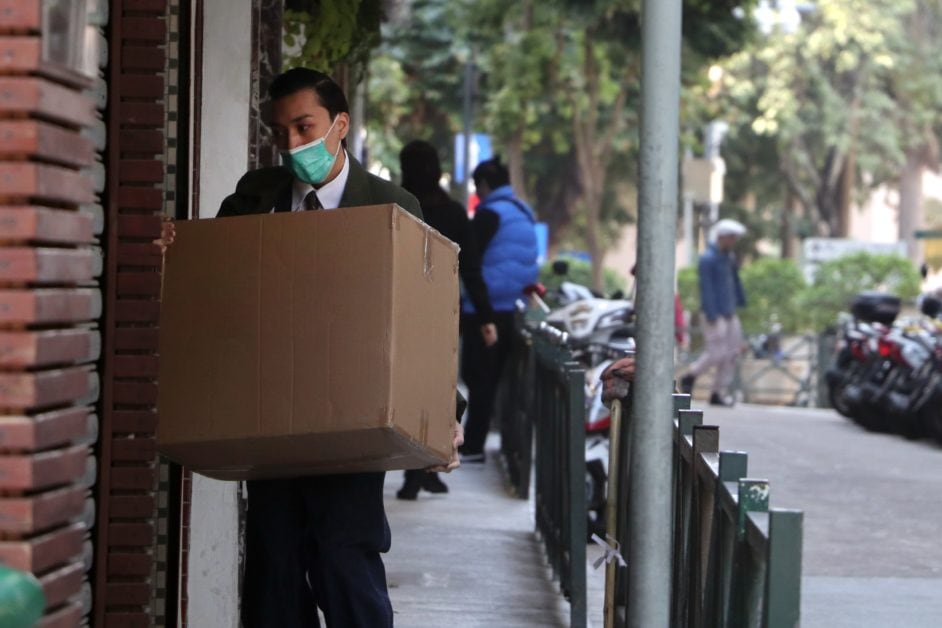
Best Ohio Whistleblower Attorney Answer: Is my job “essential” under new Coronavirus laws? What are my rights during the COVID-19/Coronavirus pandemic? Can my employer fire me for complaining about being open when we are supposed to be closed? Is COVID-19/Coronavirus a disability? Can My Boss Make Me Come To Work During Stay At Home Order?
This
is admittedly a strange employment law blog to
write. Just recently, Ohio Governor Mike DeWine ordered all “non-essential”
businesses to close and for all citizens to “shelter in place” or stay home.
Make no mistake, for the time being, this is now the law in Ohio.
Hopefully, all the Coronavirus pandemic issues pass soon, and life goes back to normal. However, it is no secret that many employers whose revenue depends on people coming in and buying stuff are worried about the economic impact of following the law. We have already heard stories of employers defying “shelter in place” orders and self-declaring themselves as an “essential business” when they are not begging the question can my boss make me come to work during stay at home order? For example, GameStop initially declared itself an essential business, but conceded that it was not and closed a day later only after an outcry from its employees.
What
are your rights in this situation? Can an employee sue for wrongful termination
if fired for refusing to break the shelter in place law?
First,
it should be noted that Ohio’s order dealing with the Coronavirus contains numerous
pages of exemptions, which is much too lengthy to detail fully in a blog. The
order can be found here. Some examples of essential businesses include:
- Stores that sell groceries and medicine;
- Food, beverage and licensed marijuana production and agriculture;
- Organizations that provide charitable and social services;
- Religious entities;
- Media;
- First amendment protected speech;
- Legal services (yes, us);
- Gas stations and businesses needed for transportation;
- Financial and insurance institutions;
- Hardware and supply stores;
- Critical trades;
- Mail post, shipping logistics, delivery and pick-up services;
- Educational institutions;
- Laundry services;
- Restaurants for consumption off-premises;
- Supplies to work from home;
- Supplies for essential businesses and operations;
- Transportation;
- Home-based care and services;
- Residential facilities and shelters;
- Professional services;
- Manufacture, distribution and supply chain for critical products and industries;
- Critical labor union functions;
- Hotels and motels; and
- Funeral services.
Your
best bet to determine whether your employer is exempt from the Coronavirus laws
would be to call the right attorney to determine whether
your employer can stay open and whether you have a basis to complain if your
employer refuses to close.
Assume for a moment that your employer is NOT covered by any exemption.
Can your boss make you come to work anyways? The short answer is no. But you
cannot just leave it at that if you want legal protection for any retaliation that might come
your way.
As
our employment lawyers have covered previously, employees who report illegal
activity at work may risk retaliation by their employers, including wrongful
termination.
In fact, we have covered the subject extensively on our employment blog. (See What Protections
Do I Have As A Whistleblower?; Can I Be Fired For
Reporting Financial Fraud At My Company?; Can I Be Fired For
Reporting A Customer’s Illegal Acts?) Normally, the offense complained about
needs to be a felony or endanger the public health in order to qualify an
employee to file a claim under Ohio’s whistleblower statute, Ohio Revised Code
§4113.52.
However, Ohio’s whistleblower statute is strict in certain respects
that the complaint has to be in writing.
Obviously,
being forced to work in defiance of a stay at home or shelter in place order in
the face of the Coronavirus pandemic clearly checks the box of “endangering the
public’s health.” Thus, it is critical that any complaint about being forced to
work during the order be both verbal and in writing. To avoid any
argument that no written complaint was actually submitted, make sure you do the
writing in some way that you will have a copy – take a picture of it, or better
yet, do it by email.
After
your complaint, the employer will have three choices. First, the employer can
choose to comply with the stay at home or shelter in place order, i.e., do the
right thing. Second, the employer can ignore your complaint and you should
immediately call the right attorney before doing
anything drastic, like quitting. Third, your employer can retaliate and fire
you. If your employer fires you for making such a complaint, or forces you to
quit, you will have a claim for unlawful retaliation under Ohio’s whistleblower
law, Ohio Revised Code
§4113.52.
What if your employer is “essential,” but you or someone you live with is diagnosed with the Coronavirus? Would that mean my boss make me come to work during stay at home order? While it is highly unlikely that even the most unsavory employer would require you to come in while positive for the disease, if they did, the same whistleblower considerations discussed above would be in play. However, you should call the right attorney and make an oral and written complaint prior to refusing to come in. These steps are necessary to protect your job.

Likewise,
COVID-19 is very likely a “disability” under the Americans with Disabilities Act (“ADA”) and Ohio Revised Code
§ 4112(A)(13).
Moreover, under the just passed Families First
Coronavirus Response Act (“FFCRA”), employees may take up to twelve weeks of
leave under the Family
and Medical Leave Act
(“FMLA”) for any of the flowing reasons:
- To care for a
minor son or daughter if the child’s school or place of care has been closed or
the child’s care provider is unavailable due to COVID-19/Coronavirus; - If you contract
COVID-19/Coronavirus; or - If anyone in your
household contracts COVID-19/Coronavirus.
Unlike
the usual requirement that an employee be employed for at least a year for
eligibility, the protections of the FFCRA kick in for all covered employees
immediately. Further, unlike “normal” FMLA, which is unpaid, under the
FFCRA, employers must provide the following benefits to all employees:
- Two weeks (up to
80 hours) of paid sick time at the employee’s regular rate of pay
where the employee is unable to work because the employee is quarantined; and - Two weeks (up to
80 hours) of paid sick time at two-thirds the employee’s regular rate of pay
because the employee is unable to work because of a bona fide need to care for
an individual subject to quarantine (pursuant to Federal, State, or local
government order or advice of a health care provider), or care for a child
(under 18 years of age) whose school or child care provider is closed.
For employees who have been employed for 30 day or longer, the benefits are more generous, requiring employers to provide up to 10 weeks of paid family leave at two-thirds the employee’s regular rate of pay where an employee is unable to work due to a bona fide need for leave to care for a child whose school or child care provider is closed or unavailable for reasons related to COVID-19.
For
an employer to be covered under the FMLA, it must have 50 or more employees. No
regulations exist at this time that would clarify if the same is true of the
FFCRA. For now, the Department of Labor has only stated “certain provisions may
not apply to certain employers with fewer than 50 employees.” More info is
expected in April.
If
you feel that you’ve been retaliated against or denied your rights in response
to COVID-19, the employment
discrimination attorneys at Spitz, The Employee’s Law Firm would like to
hear from you. Even if you are not sure
about your claim, you should call the right attorney as quickly
as possible to schedule a free and confidential consultation.

This employment law website is an advertisement. The materials available at the top of this page and at this employment law website are for informational purposes only and not for the purpose of providing legal advice. If you are still asking, ” my boss make me come to work during stay at home order “, “Can I be forced to work during the Coronavirus pandemic”, “What should I do my company refuses to close despite the Governor’s order,” “My manager retaliated against me for refusing to come to work sick” or “I was fired during the Coronavirus epidemic”, it would be best for to contact an Ohio attorney to obtain advice with respect to any particular employment law issue or problem. Use and access to this employment law website or any of the links contained within the site do not create an attorney-client relationship. The legal opinions expressed at or through this site are the opinions of the individual lawyer and may not reflect the opinions of Spitz, The Employee’s Law Firm, Brian Spitz, or any individual attorney.
